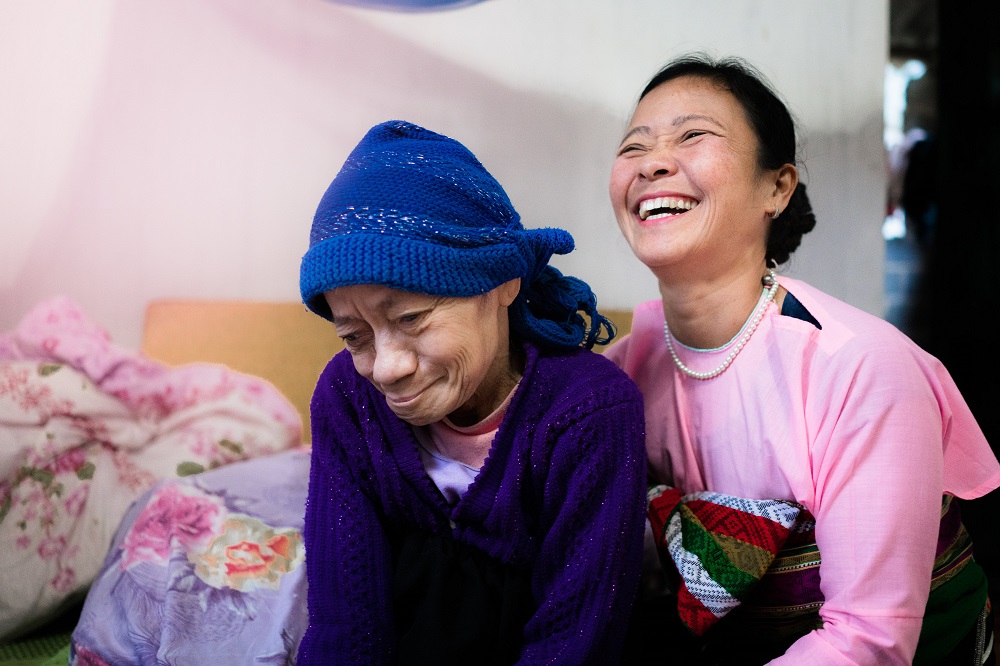
As the global population ages, health systems need to adapt to ensure older women and men can realise their right to health. Today (Wednesday 12 December), on Universal Health Coverage Day, HelpAge International and AARP are bringing health policy makers and experts around the world to launch Global AgeWatch Insights 2018, a new report that analyses older people’s right to health in the context of current demographic, epidemiological and health systems transitions.
By 2020, the number of people in the world aged 60 and over is projected to pass one billion, and to reach two billion by 2050. This is contributing to a shift towards non-communicable diseases (NCDs). Of the 41 million annual deaths caused by NCDs globally, 32 million occur in low and middle-income countries, which is changing the demands being placed on health systems.
Key findings include:
- Data systems designed to inform the planning and delivery of health services systematically exclude older people.
- Older people are prevented from accessing health services by cost, lack of transport, discrimination, and inadequate training of health workers.
- Although women are living longer, they live more years in poor health, and with disability, depression and dementia.
The report highlights the systematic lack of data there is on older people’s access to health or their health issues, which means there is insufficient evidence to effectively inform the planning and delivery of health systems. As governments globally push for universal health coverage, older people risk being left behind unless these data gaps can be filled.
Despite the increasing prevalence of NCDs among older people, many countries do not include older people in their data collection. For example, 34 of 40 countries in Africa that have conducted a World Health Organization survey on NCDs have not included anyone over the age of 64.
The report also explores differences between men and women. Although women are living longer, the report shows they live 9.4 years in poor health, compared to 7.8 for men. Among people aged 70 and over in each of the 12 profile countries in 2016, dementia causes more years lived with disability in women than men. Similarly, depression causes 4.4% of years lived with disability in women compared to 3% in men.
It also reveals that in many countries, people aged 60 and over are unable to access health services, due to distance of medical facilities, cost, lack of information and discrimination by health workers, who are often untrained in working with older people.
The report calls for universal health coverage for all at all ages, and improved access to services including prevention, diagnosis and treatment of disease among older men and women to realise their right to health. Recommendations for national governments and international agencies include:
- Training for medical staff and health workers to understand older people’s health issues and effectively treat them, and to end ageist attitudes that can deter them from seeking medical help.
- Making health facilities physically accessible.
- Taking steps to ensure the financial costs of receiving care should never be a deterrent from seeking help.
Developing detailed high-quality data that means older people’s experiences are accounted for when designing how health systems operate.
“Far too often older people are treated as invisible and left out of important developments on health and wellbeing,” said Debra Whitman, Chief Public Policy Officer at AARP. “It is time for decision-makers in all sectors – government, multilateral agencies, national statistical offices and civil society organisations – to take coordinated action to ensure inclusivity and guarantee older people’s right to health and quality, affordable health care.”
Justin Derbyshire, Chief Executive Officer of HelpAge International, said: “This year, as we celebrate the 70th anniversaries of the Universal Declaration of Human Rights and the founding of the World Health Organization, it is significant that older people are being left behind. Older people have the right to health, but they are not being counted in key data, and health services are not being adapted to meet their needs.
“Health systems in low and middle-income countries are facing severe challenges, but the global drive towards universal health coverage is an opportunity to strengthen these and meet the commitment of the Sustainable Development Goals to ensure healthy lives and wellbeing for all at all ages.”
Explore the Global AgeWatch website to find out more.
